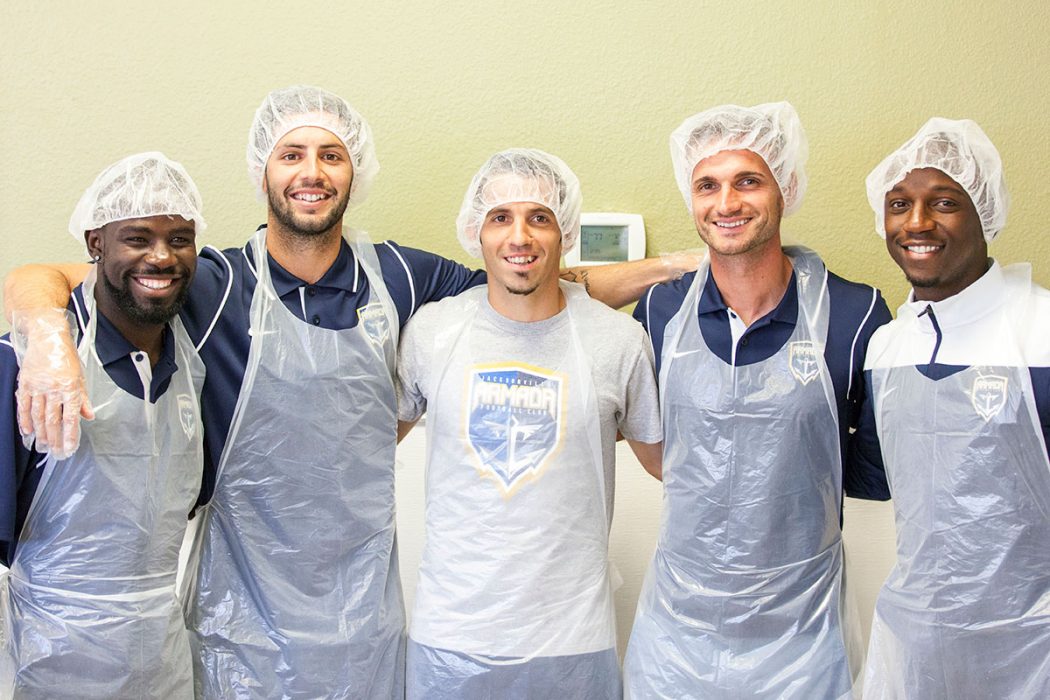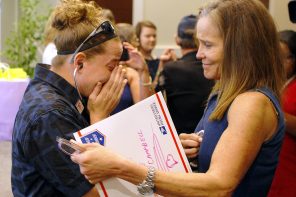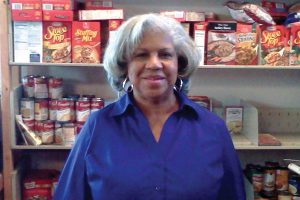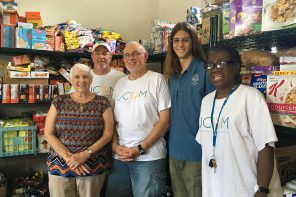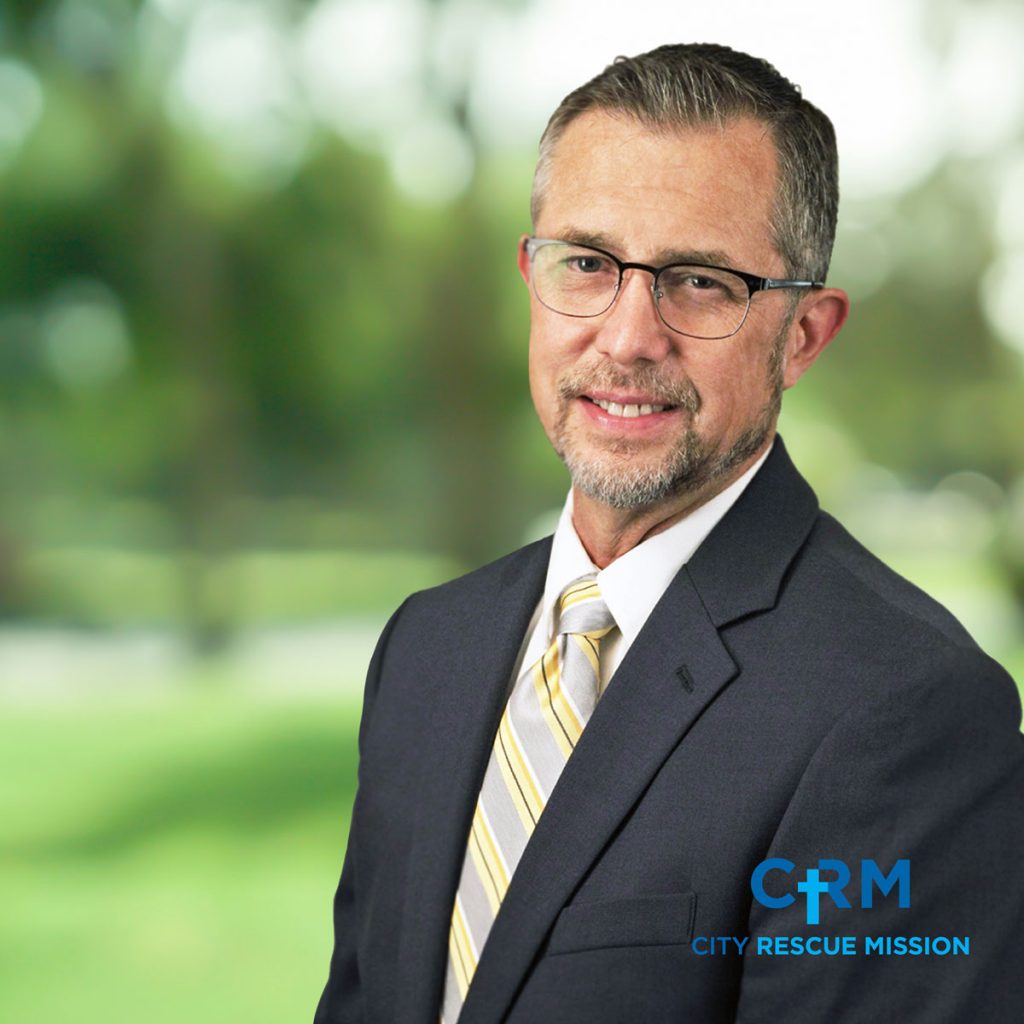Providing shelter and a hot meal is a big part of what City Rescue Mission (CRM) provides to homeless and individuals struggling with food insecurity, but it is not the only part.
In addition to offering emergency services, CRM seeks to transform the lives of the homeless and needy through “life-building programs,” all while serving them through the love and compassion of Jesus Christ.
“Often people would rather spend their resources on drugs and alcohol. For many that come to us, that is the case,” said Penny Kievet, executive director. “The problem will continue if we don’t address the poverty, drugs and lack of utilizing the surplus to help those in need.”
A nondenominational Christian nonprofit organization, City Rescue Mission was founded in 1946 by a group of downtown businessmen who came together to offer “soup, soap and salvation” to the homeless. “In the 71 years of its existence, the mission has grown to be a major provider of drug and alcohol recovery as well as emergency services consisting of food and shelter for anyone in need,” Kievet said.
Existing exclusively on donations and revenue from its thrift store, CRM provides all the services a person needs to get off the street. “We want to give them a hand up, not a hand out,” said Kievet.
Included among City Rescue Mission’s offerings are three kinds of services: Emergency Services, LifeBuilders Drug and Alcohol Recovery program, and a Work Force Development Program.
Emergency Services provides a safe environment and a place for a homeless person to shower, sleep, enjoy meals, and leave with clean clothes in the morning. After staying seven days, CRM insists clients, who seek shelter and food, work with a case manager to map out a plan to get off the street permanently.
Approximately 350 homeless register at CRM’s New Life Inn on State Street each day with the men staying at New Life and the women and children eventually heading over to Henriksen Women’s Center on the Mission’s McDuff campus.
During Hurricane Irma, CRM sheltered 500 clients, including some evacuees from the beaches, said Kievet, adding the mission also runs free medical and dental clinics for any indigent with physical problems who seek their services.
The Mission also provides dinner for clients not wishing to stay overnight, as well as a Community Closet, open Thursdays from 9 a.m. to 12 p.m., which provides clothing, hygiene products and other essentials.
The LifeBuilders Residential Drug and Alcohol Recovery program is CRM’s intensive 18-month program to assist addicts in becoming clean and sober. Approximately 165 are currently enrolled, Kievet said.
Once an addict graduates from LifeBuilders – in a ceremony with cap and gown no less – they are part of its Alumni Association and can continue to enjoy support from CRM as well as from a diverse network throughout the United States.
Also, the Mission recently started its Homes for Hope program, a transitional housing program consisting of 14 homes purchased and renovated by CRM and located on three blocks adjacent to and on its McDuff campus. Gainfully employed graduates of the LifeBuilders Program, as well as those graduated from drug and alcohol recovery programs sponsored by The Salvation Army and Trinity Rescue Mission, are welcome to rent rooms in the 14 houses on Hunt, Cecelia and Nolan Streets.
“Homes for Hope is a second chance for people who need a second chance,” Kievet explained. “We know they are clean and sober and have a job because they have been in our program or a similar program, and they need a lovely place to live that is clean. For many, they’ve never had a place this nice.”
Meanwhile, CRM’s Work Force program offers its clients academic tutoring, computer training and assistance in finding a job.
“There is a serious problem with food insecurity in Northeast Florida,” Kievet continued. “Each day, one in six residents struggle with hunger and one to four of our children experience hunger. Can you imagine the impact that has on their learning? There is no grocery outlet anywhere near the North Riverside/Murray Hill area,” she said.
Managing on a $6 million annual budget, the City Rescue Mission receives food from Feeding Northeast Florida, Farm Share, local gardens, and supplies purchased from local vendors and distributors. It also receives donations of fresh fruit from friends within the community. Donations of food are always welcome, especially the basics such as peanut butter, canned vegetables, protein foods such as tuna fish, basic spices, milk, and eggs.
“We have continued to meet the rising demand of food and shelter by keeping up with the growing numbers,” said Kievet. “The economy definitely can have an impact on the numbers we serve.
“In the past five years, we have served over 1,450,000 meals because folks are coming to us looking for meals they can’t find elsewhere. Our largest group of guests are what we call ‘eat-only.’ These are neighbors who are working and have a place to live but can’t afford to feed their families so they come to the City Rescue Mission for dinner,” she said.
“We continue to want to help more people fight the battle of hunger, unemployment, and having a place to live. City Rescue Mission is proud of our Homes of Hope that offer clean and modern living for those who have recovered and are employed,” she continued. “We also strive to meet the rising demand of food and shelter by keeping up with the growing numbers. We have a brand-new thrift store that will bring new revenue to us so we can continue to serve those in need.”

